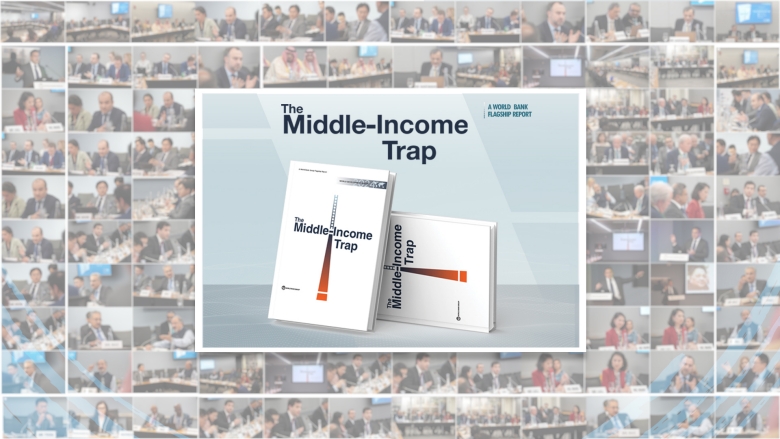In the bustling corridors of the World Bank's Annual Meetings this past October, a diverse group of finance ministers and policymakers from across the globe convened to tackle a pressing issue: the middle-income trap. The discussions, guided by the 2024 World Development Report, revealed that the strategies for overcoming this economic hurdle are relevant to all nations, regardless of their income level. This principle shaped the dialogue, leading to four key takeaways.
First, embrace crises as catalysts for reform. Crises, often seen as harbingers of doom, were reimagined as opportunities for profound change. A high-income country participant reflected on their "fortunate suffering" from crises, which necessitated social structural reforms. Another, from a middle-income country, shared how struck they were by the concept of creative destruction, and its potential to serve as a tool to restructure economic and social dynamics. However, the importance of balancing reform with robust safety nets was emphasized to avoid political upheaval and ensure public buy-in, paving the way for inclusive growth and social mobility.
Second, rebalance the role of the state and the market. The interplay between state and market emerged as a critical factor in growth narratives. Nearly all participants lauded the private sector's role in driving innovation and competition as central to their growth story. A policymaker from a high-income country shared that their economy’s “success story” is, at its heart, driven by innovative entrepreneurs in a competitive economy who are the drivers of growth and change. Policymakers noticed how the presence of incumbents, particularly state-owned enterprises (SOEs), has repeatedly led to inefficiency and stagnation of the private sector --- requiring discipline to unlock private sector potential. Several policymakers highlighted the urgency of this lesson for the energy sector, where incumbent capture stiffens the status quo and there is immense opportunity for entrants to add value and unlock growth.
Third, allocate talent to task. A robust private sector demands a workforce equipped with innovative skills tailored for future challenges. The allocation of talent is increasingly recognized as a pivotal driver of economic growth, with policymakers emphasizing the urgent need to align skills with market demands. A significant mismatch between workforce capabilities and available opportunities leads to wasted talent and stagnation in various sectors. Policymakers highlighted that investing in education and fostering a merit-based, transparent system for employment can enhance productivity and social mobility. Participants from low- and middle-income countries expressed enthusiasm for harnessing the productive power of women and young people, while representatives from high-income nations attributed their economic successes largely to well-educated workforces. One participant notably described education as a "treasure" central to vertical mobility and growth. The consensus was clear: neglecting human capital investments could result in dire socio-economic consequences, affecting household incomes, trade relevance, and overall societal well-being for generations to come.
Fourth, recognize that failure is not fatal. Cultural attitudes towards failure were identified as significant barriers to entrepreneurship and innovation. The stigma associated with failure stifles experimentation and creativity. Participants advocated for a cultural shift, promoting success stories and encouraging risk-taking through supportive institutions like universities and venture capital firms, to unlock the potential of young populations.
Look to today’s middle-income countries as teachers. Policymakers representing a diverse set of countries were eager to talk about growth strategies to address challenges that persist beyond middle-income status. Today’s middle-income countries are putting the framework outlined in the 2024 World Development Report to the test – and in the process, becoming policy entrepreneurs themselves as they navigate the opportunities and challenges of a changing world.
